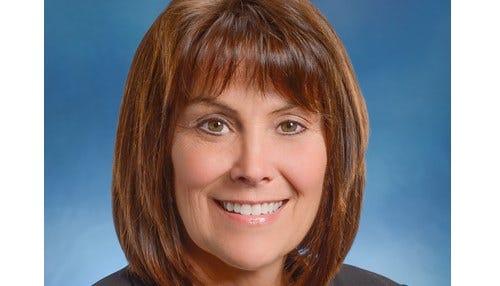To Meet Today’s Health Care Needs, Close The Nursing Shortage

Subscriber Benefit
As a subscriber you can listen to articles at work, in the car, or while you work out. Subscribe NowCultivating and attracting talent has rightly been top-of-mind for Hoosier business leaders of late – particularly as graduation season comes to a close. After all, addressing talent gap – or nurturing key talent pipelines – in key segments of our economy is essential.
But as we prioritize the attraction and retention of Central Indiana’s technology leaders, engineers and digital champions, healthcare must also be top of mind.
Nurses, in particular, are vital for delivering high-quality care to Hoosier patients. They’re called upon to be problem solvers and critical thinkers, and – across multiple healthcare disciplines – they deliver the vast majority of life-saving care to patients.
Yet, Indiana faces an acute nursing shortage that’s only projected to grow in the years ahead.
In a state that ranks among the lowest nationally on nearly every measure of health, the health outcomes of Hoosiers simply must improve. And if we’re to move the needle on outcomes, then we must also move the needle on our nursing shortage.
Consider the data: The Indiana Department of Workforce Development forecasts the field of nursing to grow 18.9 percent by 2024, yet public health experts project our state will have a shortage of about 9,000 registered nurses by 2030. This shortfall trends nationally as well, with projections indicating this deficiency will grow to about 260,000 by 2025.
Many factors are affecting this shortage. For one, the number of Americans with insurance coverage is greater today than it has ever been which means that more Americans are accessing care. Americans are also living longer than ever. According to the Pew Research Center, there are currently about 10,000 Baby Boomers who turn 65 every day. And Americans’ life expectancy is now approaching 79 years, up a year and a half from 2004 and more than three years from 1994. Taken together, these factors put a significant strain on our already limited nursing workforce.
And this problem is only exacerbated by capacity challenges in the state’s top nursing schools. In universities across the state, there simply are not enough spots for students seeking higher education training in nursing.
In 2013, Indiana’s 25 nursing programs had to turn away 2,210 qualified applicants due to faculty shortages. This trend will only be exacerbated as faculty across the state continue to reach retirement age.
We already know how Indiana is attracting tech talent; the same energy must be applied to encourage Hoosiers to join the nursing profession. This begins with creating a strong pipeline in nursing higher education, fostering postsecondary programs that offer flexibility and hands-on training while also enticing more students to pursue doctorate level preparation.
One example of such a program is Marian University’s accelerated nursing program, launched in partnership with St. Vincent. Designed as an accelerated online bachelor’s degree program, it creates an important—and faster—pathway for those seeking a mid-career shift into the nursing profession. Programs like this one are essential because they expand the base of would-be nurses beyond traditional young-adult pipelines to also include working professionals looking to enter a new field.
Redesigning education and training for nurses is for naught, however, if we do not also recognize the support services that are required in a field as challenging and demanding as nursing.
If our state is serious about attracting and retaining talent, our hospitals and universities must work together to provide professional development opportunities, along with scholarships and tuition reimbursement for ongoing nursing education. Our legislators, too, must play a role in making sure we provide statewide leadership that incentivizes nursing education.
Becoming a nurse is a life changing experience.
From treating the urgent needs of critical care patients to helping establish evidence-based guidelines for treating cardiovascular disease, I’ve seen first-hand how nurses shape the future of the patients they serve. And I feel privileged that my career has given me the opportunity to teach, travel and partner with some of the world’s leading medical practitioners.
Nursing is among the most rewarding careers anyone can pursue, and it’s one that’s absolutely essential to the lifeblood of our state.
If we are committed to addressing our state’s talent gaps, we owe it to Hoosiers to build important new pipelines of nursing talent. And if we are committed to driving access not only to coverage, but also to care, then we must nurture the talent necessary to deliver it.
Cindy Adams is Chief Nursing Officer for St. Vincent, which is part of Ascension, the nation’s largest Catholic and non-profit health system.
